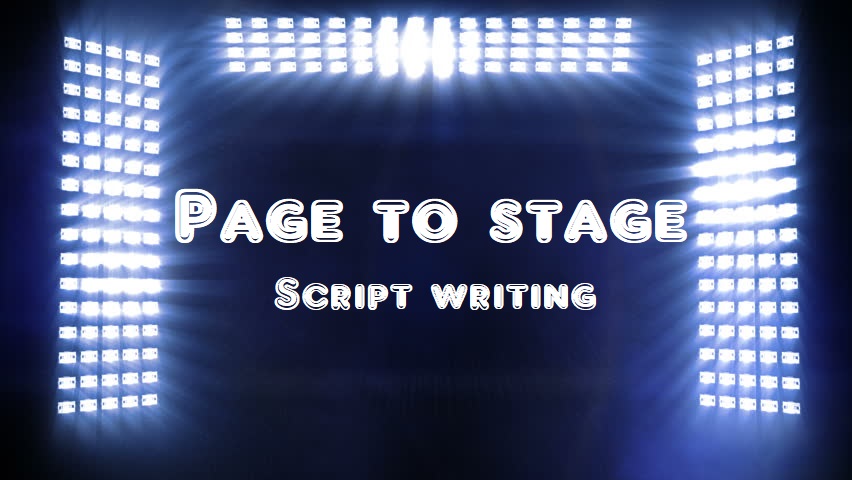In my latest screenplay, I decided to take a risk and break the rules. I wanted to give my protagonist’s back story after the inciting incident. The problem was, I needed to show almost 30 years of exposition to explain how my protagonist got to the inciting incident.
My go-to answer was a dream sequence. But this led to another problem, dream sequences usually occur later in a story. I know the rule but decided to break it. The best writers are willing to take a chance to make their stories unique.
New York Times best-selling author Jerry Jenkins advises, “Yes, you can break rules— unless you do it because you’re not thinking. If you’re breaking a rule, do it on purpose.”1 After all, writers are creatives, and nothing kills creativity like rules. That was never the purpose of the writing rules. So-called writing rules serve a few purposes that benefit both the writer and audiences.
- Help the writer look professional and not amateurish.
- Help a writer direct the narrative of the writing.
- Help the audience understand the theme and purpose of our writing.
- Help industry insiders know what kind of writer you are.
There are times to be rebellious and break the rules, but first writers must know and understand hence said “rules.”
Know the Rules?
Screenwriting coach Scott Myers advises, “There are conventions, there are expectations, there are patterns. But the simple fact is… There are no screenwriting rules!”2 I like to think of rules as guidelines, a template for my story to be built in.
Rules can be rather confining and formative, whereas guides help us plan out our stories. It goes back to the classic story versus structure debate. Structure should help a story, not hinder it.
As a creative, I prefer to let my story unfold naturally without worrying about specific features and functions. At the same time, I am aware of and acknowledge specific writing conventions. Below is a list of things to keep in mind when you are writing out your screenplay masterpiece:
- Keep title pages simple.
- Only use FADE IN and FADE OUT at the beginning and end of your script.
- Slug Lines — a.k.a. location headings — should only have three pieces of information.
- Little to no camera directions.
- Dialogue never follows the Slug Line.
- All new notable character names need to be in CAPS the first time they appear.
- Scene description is not for background.
- Dialogue is not for exposition.
- CUT TO transitions are useless in a screenplay.
- It’s not your job to dictate where actors should improvise.3
There are times when breaking the rules pays off, but not often. They are the exceptions to the rules, not to the industry standards.
Hollywood Has Its Own Standards!
Keep in mind screenwriting isn’t just an art, it’s a business and business is all about making money. Hollywood does not like taking chances. Especially for unestablished writers, the loss of investment goes up. This is part of the reason it’s so hard to break into the business of screenwriting.
The classic 90s hit “Jerry McGuire” hit the nail on the head with its catchphrase, “Show me the money!” Learning the rules of screenwriting can be profitable for everyone, even if you choose not to utilize them. Below are a few examples of films that broke the rules and were still successful:
No one wants to write a box office bomb. Not only are they financial losses, they cause collateral damage to the studio, actors, and the writers who failed to know the rules.

Martin Johnson survived a severe car accident with a (T.B.I.) Traumatic brain injury which left him legally blind and partially paralyzed on the left side. He is an award-winning Christian screenwriter who has recently finished his first Christian nonfiction book. Martin has spent the last nine years volunteering as an ambassador and promoter for Promise Keepers ministries. While speaking to local men’s ministries he shares his testimony. He explains The Jesus Paradigm and how following Jesus changes what matters most in our lives. Martin lives in a Georgia and connects with readers at Spiritual Perspectives of Da Single Guy and on Twitter at mtjohnson51.
1 Jenkins, J.B. (2006). Writing for the Soul, Writer’s Digest Books, pg. 187
2 https://gointothestory.blcklst.com/so-called-screenwriting-rules-part-4-8851dd1943de
3 https://thescriptlab.com/features/screenwriting-101/8886-15-simple-screenplay-rules-you-need-to-know/



 We love helping your growing in your writing career.
We love helping your growing in your writing career.

No Comments